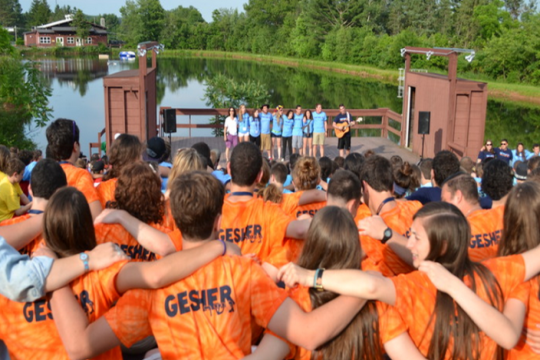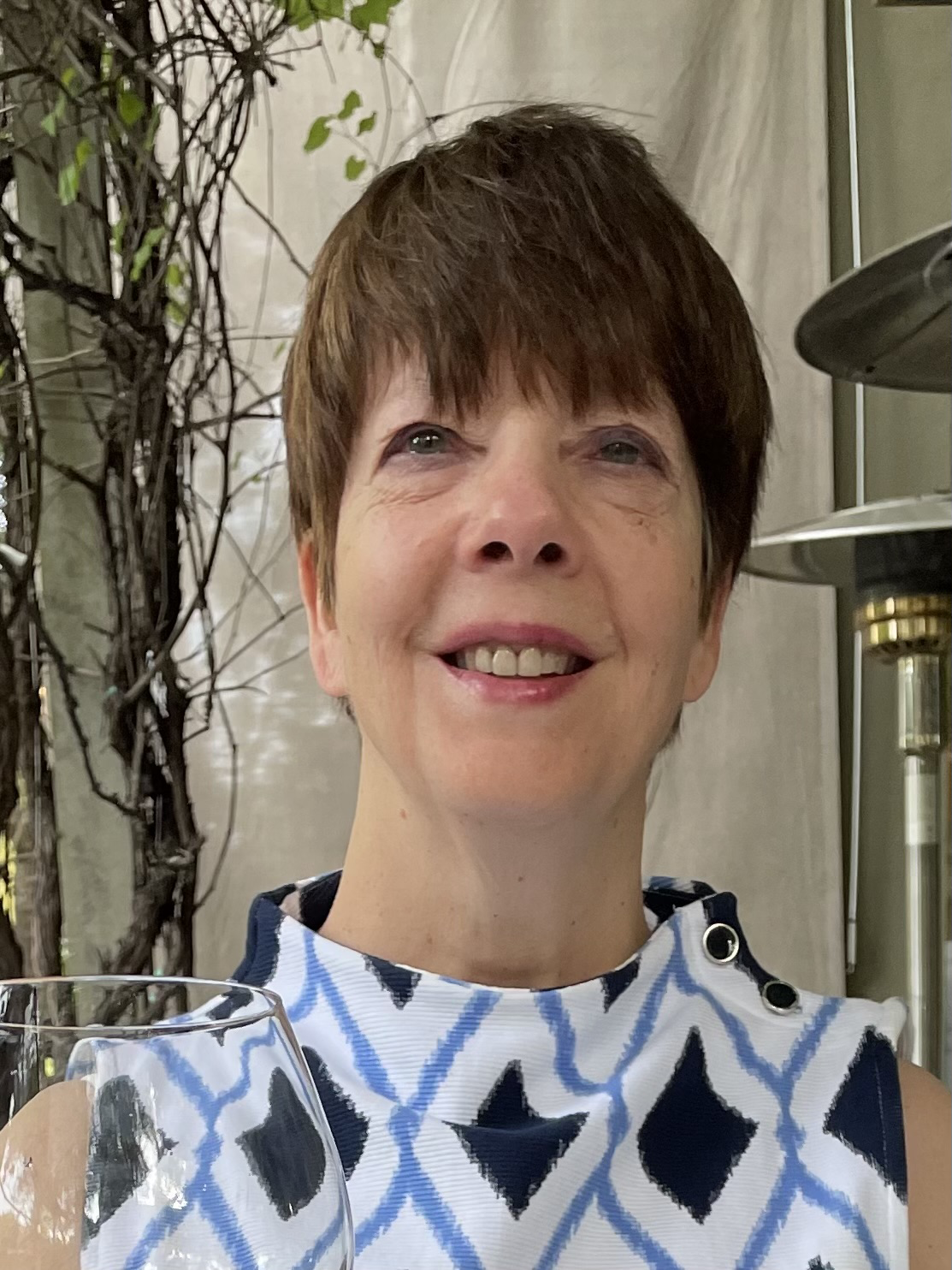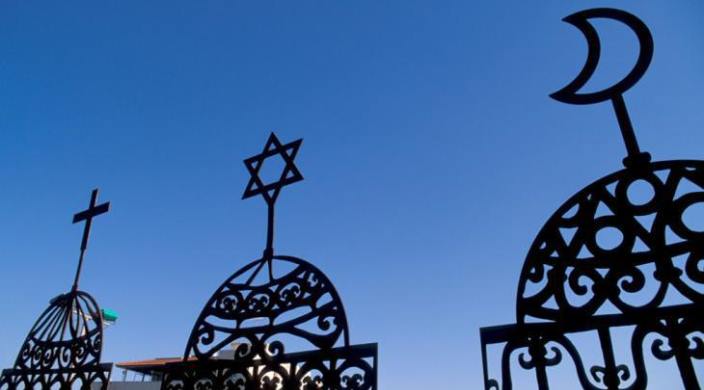
My Jewish husband and I have been on an interfaith journey for 43 years. Our wedding brought our friends and family, both Jews and Christians, into an old brick church where our beautiful chuppah sat below a hanging macrame cross where we took our vows before a rabbi and a priest. Our sons, now 30 and 34, celebrated their b'nei mitzvah and confirmation at Congregation Beth Am in Los Altos Hills, CA.
My husband and I are both active at Congregation Beth Am, where my husband serves on the Board of Directors. Our life is enriched with each other's faith, traditions, and values. In 2012, we discussed with our then-senior rabbi, Janet Marder, our dream for creating interfaith dialogue between Bay Area Christians and Jews. With inspiration from a past URJ curriculum, "Open Doors Open Minds - Synagogues and Churches Studying Together - A Guide for Christian-Jewish Dialogue," we created a successful dinner and interfaith dialogue program for Jews and Christians.
From 2013 through February 2020, we offered our Building Bridges program seven times with more than 160 participants from local Bay Area faith communities, including congregants from two Reform synagogues, Congregations Beth Am and Shir Hadash (Los Gatos, CA), and four different Episcopal and Catholic churches. Participants entered as strangers and left as friends. Our program, led by fellow congregants, asked participants to share their own faith experiences and hear those of others, Jew and Christian alike. Participants not only learned about other faith traditions but came to a deeper appreciation of their own faith through sharing what was important to them.
Our participants reported in anonymous surveys that these programs were the most impactful engagement experiences they had experienced at church or synagogue. According to one participant, "The faith and experience-based discussions were very meaningful and thoughtful - not enough of that happens in our busy 'regular' lives." Relationships continued among our participants long after the dialogue programs concluded.
We offered alumni programming. Christians attended Torah Study and classes at the synagogues, while Jews joined Bible Study at the churches, bringing fresh perspectives to all these classes. Alumni worked together on social action projects. After the horrific Tree of Life and Poway shootings, Christian friends mourned with the Jewish community.
Beginning in 2018, my husband and I began outreach to local Muslim organizations and became members of the Interfaith Speakers Bureau for Islamic Networks Group We developed many friendships with local Muslims interested in interfaith dialogue. We decided to expand our interfaith dialogue program to include Muslims and offer our program across the United States. Our goal is to create deep and sustainable relationships among people of the Abrahamic faiths across our nation. Each of the three Abrahamic faiths teaches that love for the other and hospitality are holy endeavors.
At the center of the Torah, we find Leviticus 19:18, "You shall love your neighbor as yourself." Through interfaith dialogue we can promote relationship building and peacemaking, providing an example for the world at large. We share many values, including a desire for peace. We can all confront antisemitism and Islamophobia with dialogue and relationships. Indeed, the most effective way to dismantle prejudice is to form personal relationships with "the other."
In our divided society, it is sacred work to create understanding and bridge across differences to form relationships. These relationships also offer allies in times of turmoil and uncertainty. In the wake of ongoing racism and other forms of systemic oppression, the attacks on synagogues and increasing antisemitism across the United States, allies are important. Working together gives us hope in our future. New friendships offer new energy for community projects. We are all stronger with more friendships in our local multi-faith communities. Our participants value being pioneers in bridge building in a fractured world.
We are practicing tikkun olam, healing the world, one program at a time. Since 2019, we have worked with a group of 14 dedicated volunteers of the Muslim, Jewish, and Christian faiths on our Interfaith Advisory Board. We created a new curriculum which accommodates either bi-faith or tri-faith dialogue among Jews, Christians, and Muslims. Our new program covers the perspectives of the three Abrahamic faiths on topics like holidays, food and fasting, symbols, holy scriptures, stereotypes, and the place of each faith in the world.
Congregation Beth Am, still committed to interfaith dialogue, is sponsoring the first tri-faith Interfaith Bridges™ program with a local mosque and church. Our Interfaith Bridges ™ program is now available for faith communities across the US. If you'd like to bring our programs to your community, we'd love to help you get started building bridges together!
Related Posts
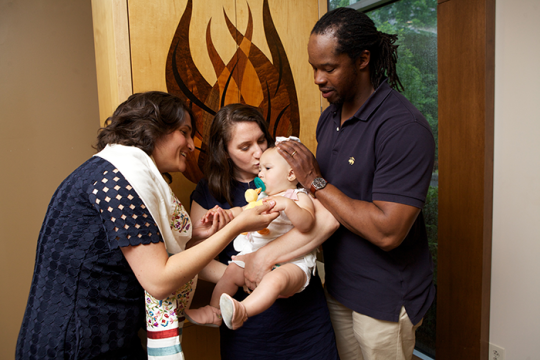
Interfaith Inclusion in Our Communities
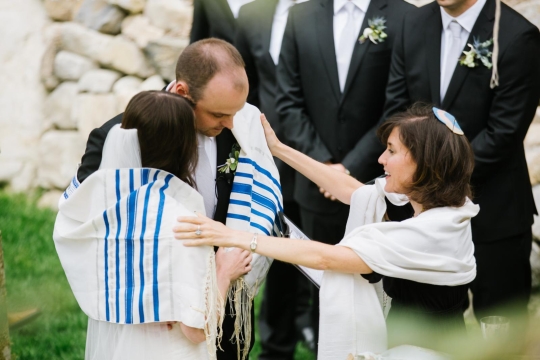
Creating Welcoming Spaces for Interfaith Couples
